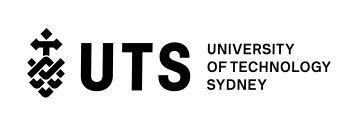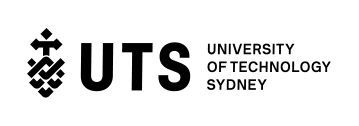Postdoctoral Associate / Postdoctoral Fellow- Epigenetics - [Archived Advertisement]
University of Technology Sydney (View other jobs from this organisation)
At UTS, the concepts of equity and social justice are key to our core and purpose – we are recognised widely as supporting inclusivity and valuing diversity. Cited as a WGEA Employer of Choice since the inception of the award, we are now among the first Australian institutions to receive the Athena SWAN Bronze Accreditation for our commitment to action addressing gender equity in the STEMM disciplines. UTS Equal Futures celebrates and supports women in academia through every stage of their career.
The Centre for Inflammation led by Professor Phil Hansbro aims to be recognised as a world-leading research centre in chronic respiratory diseases, and to be recognised by Australian industry and government agencies as a leading source of knowledge and expertise in this space. The Centre carries out fundamental research investigating the mechanisms of disease induction and progression as well as development of new and novel therapies and preventatives, and translational human clinical studies.
About the role
We are looking for a motivated and productive post-doctoral researcher(s) to investigate the development and progression of chronic respiratory diseases such as COPD, asthma, lung cancer and infections using epigenomics studies of mouse and human tissues. The role will have a major emphasis on investigating novel therapeutic and preventative treatments for chronic lung disease. You will undertake specific as well as epigenome-scale analysis.
You will have the opportunity to further develop your personal scholarly standing through contribution to publications, presentations, and through collaborative research activity both internally and externally.
About you
Essential to success in this role are your skills and experience in immunological, cellular and molecular techniques (preference is in the field of respiratory disease).
You will also have:
- A Doctoral Degree in respiratory, molecular, immunology, microbiology or cellular research, or bioinformatics analysis of specific factors and preferably epigenome-scale data, such as CHIP-Seq and related chromatin analysis methods, large scale determination of methylation status or other genome-scale epigenetic tools (or near submission at Associate Level)
- Demonstrated skills in data visualization, computer programming and scripting, ideally in R or Python
- Experience with high-performance computing environments, including academic and/or commercial cloud computing platforms is desirable
- Experience in standard laboratory techniques including ELISA, PCR, immunoblot, flow cytometry, cell culture, aseptic technique, and extraction of genetic material
- Proven knowledge of research methodology, policy and requirements of health-related research
For appointment at the higher level, you will have a research track record including leading and contributing to papers and grants, with emerging evidence of national recognition in your field of expertise.
For the full list of the selection criteria and role responsibilities please download the Position Statement from our website.
Remuneration & Benefits
Base Salary Range:
Postdoctoral Associate $77,396 - $94,263 pa (Level A)
Postdoctoral Fellow $102,952 to $121,849 pa (Level B)
The successful applicant may be appointed at level A or B dependent on their level of expertise and experience as outlined in the essential criteria on the Position Statement.
This role attracts 17% superannuation (pension) in addition to the base salary
This position is full time and appointment will be made on a fixed term basis for 2 years.
How to Apply
Please visit our website to apply for the position. You are required to address the selection criteria in your submission, in a separate document.
As you will be unable to save your application once started, please have all required documents and information available prior to commencing.
Please ensure that the file name for each document submitted includes IRC130805.
Specific enquiries or issues with your application may be directed to the UTS Recruitment Team at recruitment@uts.edu.au or on +61 (0) 2 9514 1080.
Closing Date: Thursday 23rd of May 11:59pm (AEST) 2019
At UTS, the concepts of equity and social justice are key to our core and purpose – we are recognised widely as supporting inclusivity and valuing diversity through our Wingara Indigenous Employment Strategy, Social Impact Framework and UTS Access and Inclusion Plan.
Job Summary
- Closing Date:
- 23 May 2019
- Location:
- NSW
- Salary:
- $77,396 - $94,263 pa (Level A) OR $102,952 to $121,849 pa (Level B)
- Work Type:
- Full Time
- Category:
-
Fellowships
Research
Research Assistants and Fellowships







 Print
Print

